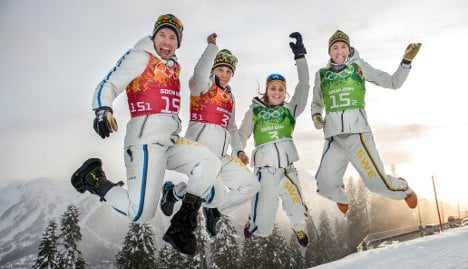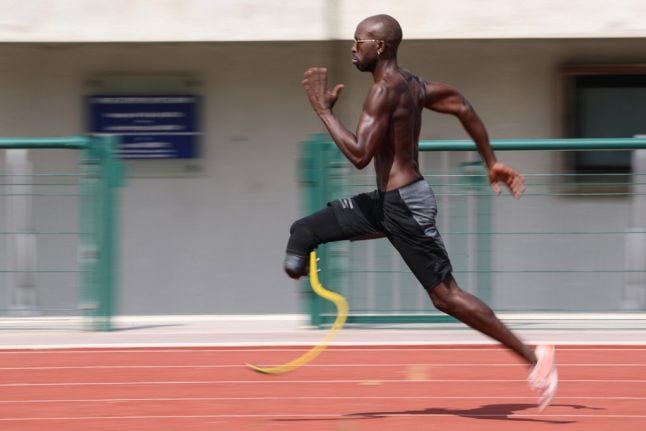OLYMPICS
Sweden win ‘Bradbury bronze’ after sprint chaos
Sweden won another two medals on Wednesday as both the women and men's team sprint athletes finished third. But the race wasn't without a touch of controversy for the men's team.
Published: 19 February 2014 14:36 CET

Emil Jönsson, Ida Ingemarsdotter, Stina Nilsson and Teodor Peterson. Photo: Maja Suslin/TT
Sweden charged up the bronze medal table on Wednesday thanks to some fancy footwork at the Sochi Olympics in the team sprint finals, where teams of two take it in turns to perform three punishing sprints each.
The women's event was first and Winter Olympic stalwarts Norway took home the gold, followed by Finland nine seconds later for the silver.
The Swedish team of Ida Ingemarsdotter and Stina Nilsson finished third in 16min 23.82sec. The medal marked the second of the games for Ingemarsdotter, who pulled in the gold in the Cross-Country Relay 4 x 5km.
Half an hour later, the men's team in the same event also won the bronze, crossing the line after Finland and Russia.
The race was plagued by controversy after the German team suffered a fall after touching skis with a Finnish racer, leaving plenty of space for the Swedish team to sail to bronze.
The Swedes, Emil Jönsson and Teodor Peterson, were credited by the Aftonbladet newspaper as winning a "Bradbury bronze", referring to the Australian skater Steven Bradbury who skated to gold glory in Salt Lake City in 2002 after all the other competitors fell (see video below).
"Someone yelled 'The German has fallen over' and then I noticed that Theodor was taking it rather easy," Jönsson said in a televised interview afterwards.
"So I just stood up and screamed 'Go, goddammit!' As luck would have it, Theodor had already seen the German."
The bronze was Jönsson's second of the games, and Peterson can add his medal to a silver from the Cross Country Sprint Free Finals last Tuesday.
The German team protested the finish, claiming they were closed out by the Finnish team, but the jury rejected the protest, describing the clash as a "race incident".
Url copied to clipboard!




 Please whitelist us to continue reading.
Please whitelist us to continue reading.
Member comments